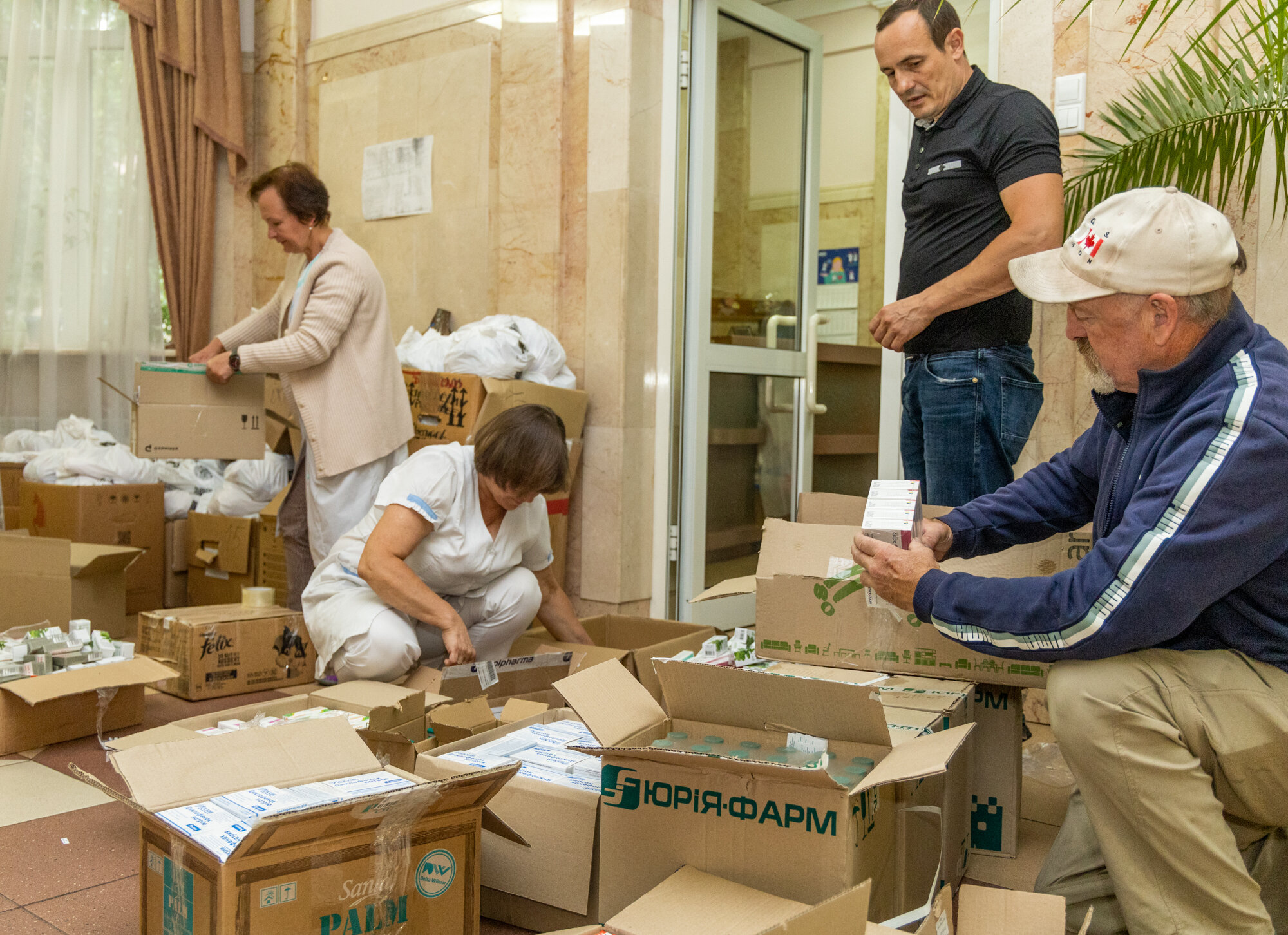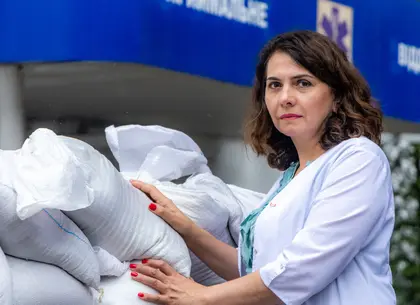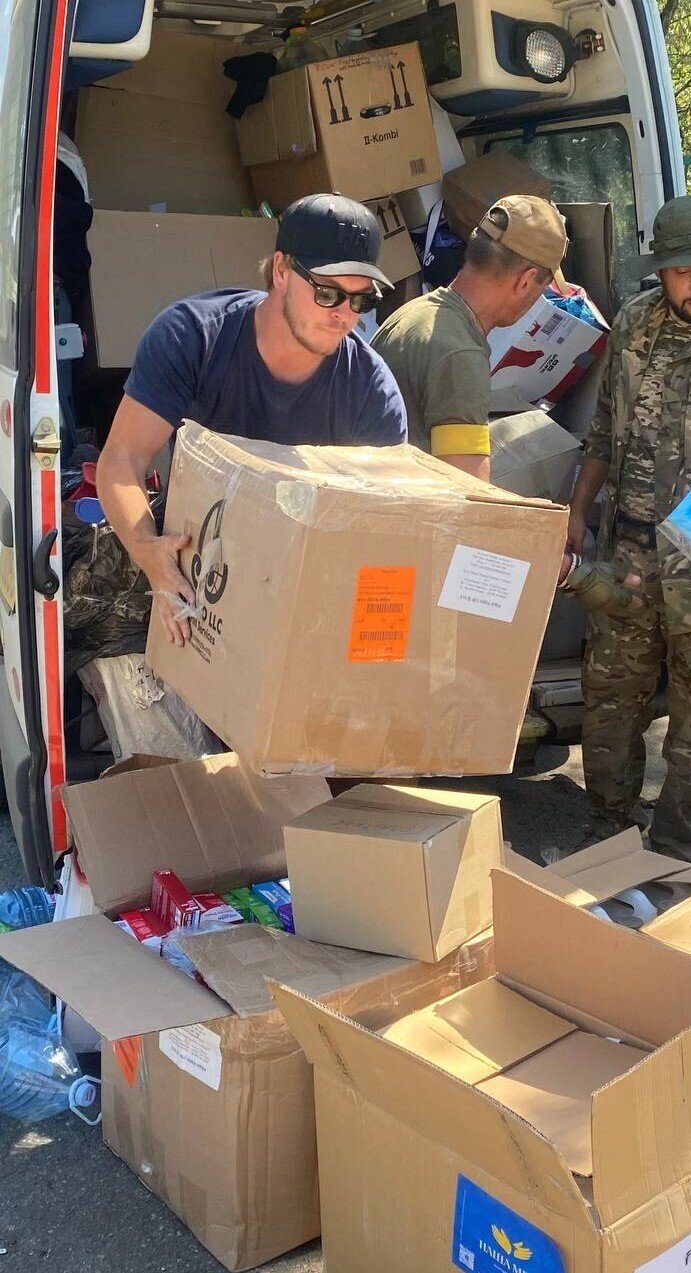In the first days of the war, among all the panic and chaos, Dr. Maryana Dvulit MD witnessed a huge problem for patients who relied on critical daily medications such as insulin pens, antibiotics, and blood pressure pills. Desperate people without money were calling the doctor, crying “It’s my life!”.
Pharmacies were closed. So, on February 26th she began a huge task.
JOIN US ON TELEGRAM
Follow our coverage of the war on the @Kyivpost_official.
Dr Dvulit posted a video on social media insisting that everyone fight the Russians together, and then went to work sourcing and distributing whatever was needed.
She estimates that to date they have loaded thousands of kilograms of medicine, food, clothing, pampers, and baby food, for transport to civilians in war-torn cities such Kharkiv, Lysychansk, Bakhmut, and the surrounding villages in east Ukraine.

According to Paul Hughes, founder of the aid group Humanitarian Ukraine Grassroots Service (HUGS), Dr Dvulit is well-known throughout the extensive network of humanitarian aid workers and organizations operating in Ukraine, as a major source of materials and medications for the truly needy.
“It’s like a fine fabric that stretches across Ukraine,” says Paul. “It’s the families, humanitarian aid groups, and people like Dr. Maryana who fill the gap and supply the soldiers with their equipment and food. It’s not large military convoys or the UN or the Red Cross. Those people aren’t anywhere out here.”

Trump Makes 90 Day Foreign Aid Freeze – Ukraine Military Support Supposedly Untouched
While patients line up outside her office, Dr Maryana, as she’s known, uses her lunch break to talk about the never-ending volunteer work at her newly formed Renaissance Foundation of Ukraine. While being interviewed, two volunteers enter her office carrying an array of war necessities, including locally-made ballistic vests, boxes of flashlights, tourniquets, and Israeli blood-trauma bandages.
In the lobby of her practice, five more volunteers pull apart piles of boxes loaded with medications bought with Canadian-donated funds, to inspect and reorganize their contents for immediate transport to the front lines.
“We’re ready to help all the time, but we need donations” she says energetically. “We need pharmacological help across Ukraine. We can buy most of these items here, but we need money.” And then, with a tip-of-the-hat and her hands clasped over her heart, the doctor adds, “We thank you Americans, Canadians and Polish who help us so much!”
She has a full obstetrics and gynecology practice, three children, a husband, and all the traditional family duties – but she also runs her foundation, along with a volunteer crew of more than 200 nurses, friends, and doctors from other medical groups.
This has been going on for five months with no anticipation of slowing. The doctor has dozens, probably hundreds of photos of herself with military, humanitarian, and medical personnel who have filled a van, SUV, or truck to the max with supplies. As she gathers her volunteers for a group photo, large crates of donated snacks sit in the front hall of the clinic, ready for distribution.
When asked why she’s dedicating so much of her life to this enormous task, she responds, “I’m a doctor, I have to help my patients! I cannot watch when women and children cry. I can’t look when Russians kill woman and children and crush houses. We must stop this war!”
The doctor automatically ticks off a litany of items for the military as though the urgency just won’t let go of her:
“We desperately need military uniforms, special blood clotting medication that is very expensive, tactical gear like ballistic vests, Motorola 2-way radio telephones, and AGM Rattler thermal imaging riflescopes which are very expensive.
These items and “collapsible spades, which are not so expensive but are actually very important,” go to the Ukrainian Army, National Police, and the Territorial Border Police. The military comes to them all day, every day. She and her volunteers work to distribute the much needed aid “24/7. There are no holidays,” she laughs as she speaks to the Kyiv Post. ”My patients say, ‘Go to the soldiers, we will wait for you.’ ”
You can also highlight the text and press Ctrl + Enter












